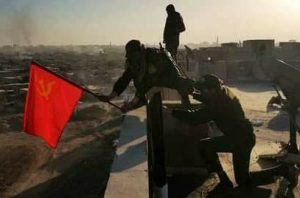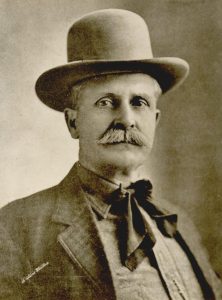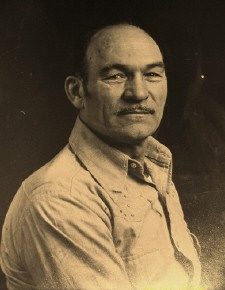Monthly Archives: November 2019

 My great grand-niece, Laila Spethman was a sweet little girl, who was a light in her parents’ lives. She was loved by her whole family. Her time on Earth was short…very short…just 18 days, but her impact on all those who loved her will continue. We all look forward to the day when we will see her again, along with all our other loved ones who have gone before us. In many way, we can rejoice for Laila, because she has been someplace and seen things that we cannot, Heaven and most importantly, God. How amazing for Laila, to know the Father and the Saviour. It is a time in our lives that we all look forward to. The time when we are truly home.
My great grand-niece, Laila Spethman was a sweet little girl, who was a light in her parents’ lives. She was loved by her whole family. Her time on Earth was short…very short…just 18 days, but her impact on all those who loved her will continue. We all look forward to the day when we will see her again, along with all our other loved ones who have gone before us. In many way, we can rejoice for Laila, because she has been someplace and seen things that we cannot, Heaven and most importantly, God. How amazing for Laila, to know the Father and the Saviour. It is a time in our lives that we all look forward to. The time when we are truly home.
Still, for Laila, we feel sadness too. Not for her really, but for us. I wonder who she would have been had she stayed here. Would she have been bubbly and ever-changing, like her little sister, Aleesia, who has progressed from being a girly girl, to sometimes wanting to be a bit of a tomboy. I’m sure that has come from having three older brothers, and like all younger children, wanting to be just like the older siblings. I’m sure that Laila would have felt the same way about her brothers, Xander, Zack, and Isaac. For little girls, especially, their older brothers are their role models. Girls often base many of their ideas on what men should be like on their dads and brothers, and Laila would have had some great role models to base her ideas on, because she was loved.
We were all hoping Laila would get to come home with her parents, but that was not to be. Nevertheless, her 
 memory will always be with us. Her sweet little face, so dainty and beautiful. Her beautiful eyes, looking at her family with love. She was so cuddly and loved being held by her family. Of course, there were a number of us who didn’t get to see her in this life, but we will always know her when we meet her again in Heaven. And then, we will get to know who she was and is. This life is so short, and while it seems like a long time, it is only a drop in the bucket of time, and then we will get to know Miss Laila Elizabeth Spethman. Happy birthday in Heaven Laila. We already love you even though we don’t know you well…yet.
memory will always be with us. Her sweet little face, so dainty and beautiful. Her beautiful eyes, looking at her family with love. She was so cuddly and loved being held by her family. Of course, there were a number of us who didn’t get to see her in this life, but we will always know her when we meet her again in Heaven. And then, we will get to know who she was and is. This life is so short, and while it seems like a long time, it is only a drop in the bucket of time, and then we will get to know Miss Laila Elizabeth Spethman. Happy birthday in Heaven Laila. We already love you even though we don’t know you well…yet.
 The ending of a war, does not always mean the beginning of peace, or even the end of fighting. Those who lost, don’t usually like the fact that they lost. As World War I drew to a close, angry rebels in both Germany and Austria-Hungary carried out a revolt on November 3, 1918, raising the red banner of the revolutionary socialist Communist Party and threatening to follow the Russian example in bringing down their imperialist governments.
The ending of a war, does not always mean the beginning of peace, or even the end of fighting. Those who lost, don’t usually like the fact that they lost. As World War I drew to a close, angry rebels in both Germany and Austria-Hungary carried out a revolt on November 3, 1918, raising the red banner of the revolutionary socialist Communist Party and threatening to follow the Russian example in bringing down their imperialist governments.
By the last week of October 1918, three of the Central Powers…Germany, Austria-Hungary, and the Ottoman Empire…were in talks with the Allies about reaching an armistice, while the fourth, Bulgaria, had concluded talks in September. On October 28, approximately 1,000 sailors in the German navy were arrested because they refused to follow orders from their commanders to launch a last-ditch attack against the British in the North Sea.
The rebels soon immobilized the German fleet. Then, the resistance spread to the German city of Kiel, where some 3,000 sailors and workers raised the red flag of communism on November 3. Admiral Wilhelm Souchon, the governor of Kiel, quickly called on naval officers who were loyal to the government to suppress the revolt. During the ensuing battle, eight rebels were killed, but the general resistance continued.
 Meanwhile, the revolution was spreading in Vienna, as well as in Budapest, where the former Hungarian prime minister, Count Istvan Tisza, was assassinated by members of the communist-led Red Guard on October 31. By now, the empire was in shambles, so the Austro-Hungarian government secured an armistice with the Allied powers on November 3rd, ending its participation in World War I. That same day in Moscow, at a mass rally in support of the Austrian rebels, the communist leader Vladimir Lenin declared triumphantly: “The time is near when the first day of the world revolution will be celebrated everywhere.” It seems that evil will try to reincarnate, wherever it can find a group sympathetic to its cause.
Meanwhile, the revolution was spreading in Vienna, as well as in Budapest, where the former Hungarian prime minister, Count Istvan Tisza, was assassinated by members of the communist-led Red Guard on October 31. By now, the empire was in shambles, so the Austro-Hungarian government secured an armistice with the Allied powers on November 3rd, ending its participation in World War I. That same day in Moscow, at a mass rally in support of the Austrian rebels, the communist leader Vladimir Lenin declared triumphantly: “The time is near when the first day of the world revolution will be celebrated everywhere.” It seems that evil will try to reincarnate, wherever it can find a group sympathetic to its cause.
 On mornings when I wake up with a backache, the idea of sleeping in a zero gravity chamber sounds appealing, but in reality, living in a zero gravity environment is probably not something I would want to do for very long. While I admit, gravity can put a strain on our bodies in many ways, I don’t think we were really designed to live our whole life without gravity. Nevertheless, living and working in space have become more commonplace than many of us realize. We don’t give much thought to the men and women who live and work in the International Space Station, or in the various crafts that have transported them there over the years.
On mornings when I wake up with a backache, the idea of sleeping in a zero gravity chamber sounds appealing, but in reality, living in a zero gravity environment is probably not something I would want to do for very long. While I admit, gravity can put a strain on our bodies in many ways, I don’t think we were really designed to live our whole life without gravity. Nevertheless, living and working in space have become more commonplace than many of us realize. We don’t give much thought to the men and women who live and work in the International Space Station, or in the various crafts that have transported them there over the years.
It was on November 2, 2000, that the first residential crew would arrive aboard the International Space Station (ISS). The arrival of Expedition 1 was the mark of the beginning of a new era of international cooperation in space and of the longest continuous human habitation in low Earth orbit…and it continues to this day…even without the Space Shuttle’s operation…though I don’t think it is as easy to work out the logistics without the Space Shuttle. Two Russians, Yuri Gidzenko and Sergei Krikalev, accompanied by NASA’s Bill Shepherd, were selected as the crew of Expedition 1.
It was decided that we needed an International Space Station in 1998, and the space agencies of the United States, Russia, Canada, Japan and Europe agreed to cooperate to bring it to pass. Its first components were launched into orbit later that year. In all, there would be five space shuttle flights and two unmanned Russian flights to complete the delivery of many of its core components and partially assemble the space station. It was  a huge project that would possibly accomplish in space, what we had never been able to accomplish on Earth…nations working together on experiments that mattered to all of them to bring about changes in key areas like health, agriculture, energy, and a host of other things. The ISS was truly a first.
a huge project that would possibly accomplish in space, what we had never been able to accomplish on Earth…nations working together on experiments that mattered to all of them to bring about changes in key areas like health, agriculture, energy, and a host of other things. The ISS was truly a first.
The two cosmonauts and the astronaut arrived at the ISS on a Russian Soyuz rocket that had been launched from Kazakhstan. This first mission was tasked mostly with constructing and installing various components and activating others. This was sometimes easier said than done, and in fact, the crew reported that it took over a day to activate one of the station’s food warmers. I hope they weren’t too hungry!! Throughout their time in space, they were visited and resupplied by two unmanned Russian rockets and three space shuttle missions, one of which brought the photovoltaic arrays, giant solar panels, which provide most of the station’s power.
Shepherd, Gidzenko and Krikalev became the first humans to adjust to long-term life in low orbit, circling the Earth roughly 15.5 times a day and exercising at least two hours a day in order to offset the muscle atrophy that occurs in low gravity. This is where I thought relief of backaches for sleeping wrong might have been solved, but it turns out that there were a host of other problems that come for long-term weightlessness. Who knew? Things like lessened bone density, and pain in joints upon returning to Earth. Hmmm, I guess I’ll sleep here on Earth in gravity, and take Excedrin as needed.
 Finally, on March 10, four months after they arrived at the ISS, the space shuttle Discovery brought three new residents to relieve Expedition 1, who landed back on Earth at the Kennedy Space Center on March 21. Since then, humans have continuously resided on the ISS, with plans to continue until at least 2030. 236 people from 18 nations have visited the station and a number of new modules have been added, many for the purpose of research into biology, material sciences, the feasibility of further human space travel and more. Some tams have been there longer than other teams, but all of them have made great contributions to science during their time on the ISS.
Finally, on March 10, four months after they arrived at the ISS, the space shuttle Discovery brought three new residents to relieve Expedition 1, who landed back on Earth at the Kennedy Space Center on March 21. Since then, humans have continuously resided on the ISS, with plans to continue until at least 2030. 236 people from 18 nations have visited the station and a number of new modules have been added, many for the purpose of research into biology, material sciences, the feasibility of further human space travel and more. Some tams have been there longer than other teams, but all of them have made great contributions to science during their time on the ISS.
 Unfortunately, there are among us, people who are corrupt and ruthless, and sometimes, things happen because of corruption, anger, or even stupidity. William Tilghman was born in Fort Dodge, Iowa on July 4, 1854, at the height of the “Wild West” era. He was a man who wanted something more, so at 16 years old, he moved west. As sometimes happened, men who went west, toyed with the wild life that was brought about by the lawless area. Tilghman was no different. He fell in with a bad crowd of young men who stole horses from the Indians. After several narrow escapes with angry Indians, Tilghman decided that rustling was too dangerous and settled in Dodge City, Kansas, where he briefly served as a deputy marshal before opening a saloon. He was arrested twice for alleged train robbery and rustling, but the charges did not stick. It was a shaky start, but Tilghman gradually built a reputation as an honest and respectable young man in Dodge City. Before long, he became the deputy sheriff of Ford County, Kansas. Later, he was offered and accepted the job of the marshal of Dodge City…a real life Matt Dillon, from Gunsmoke.
Unfortunately, there are among us, people who are corrupt and ruthless, and sometimes, things happen because of corruption, anger, or even stupidity. William Tilghman was born in Fort Dodge, Iowa on July 4, 1854, at the height of the “Wild West” era. He was a man who wanted something more, so at 16 years old, he moved west. As sometimes happened, men who went west, toyed with the wild life that was brought about by the lawless area. Tilghman was no different. He fell in with a bad crowd of young men who stole horses from the Indians. After several narrow escapes with angry Indians, Tilghman decided that rustling was too dangerous and settled in Dodge City, Kansas, where he briefly served as a deputy marshal before opening a saloon. He was arrested twice for alleged train robbery and rustling, but the charges did not stick. It was a shaky start, but Tilghman gradually built a reputation as an honest and respectable young man in Dodge City. Before long, he became the deputy sheriff of Ford County, Kansas. Later, he was offered and accepted the job of the marshal of Dodge City…a real life Matt Dillon, from Gunsmoke.
Tilghman was one of the first men into the territory when Oklahoma opened to settlement in 1889, and he became a deputy US marshal for the region in 1891. In the late 19th century, lawlessness was still very much a part of Oklahoma. Tilghman helped to bring order the to area by ridding Oklahoma by capturing some of the most notorious bandits of the day. While locking up many criminals, Tilghman, nevertheless, managed to earn a well-deserved reputation for treating even the worst criminals fairly and protecting the rights of the unjustly accused. Any man, who found himself in Tilghman’s custody, knew he was safe from angry vigilante mobs,  because Tilghman had little tolerance for those who took the law into their own hands. In 1898, a wild mob lynched two young Indians who were falsely accused of raping and murdering a white woman. Tilghman arrested and secured prison terms for eight of the mob leaders and captured the real rapist-murderer.
because Tilghman had little tolerance for those who took the law into their own hands. In 1898, a wild mob lynched two young Indians who were falsely accused of raping and murdering a white woman. Tilghman arrested and secured prison terms for eight of the mob leaders and captured the real rapist-murderer.
In 1924, after serving a term as an Oklahoma state legislator, making a movie about his frontier days, and serving as the police chief of Oklahoma City, Tilghman might well have been expected to quietly retire. However, it was the height of the Prohibition era, and the old lawman was unable to hang up his gun. He still felt a calling to keep law and order in his town. He accepted a job as city marshal in Cromwell, Oklahoma. On November 1, 1924, William Tilghman, who was known to both friends and enemies alike as “Uncle Billy” was murdered by a corrupt prohibition agent who resented Tilghman’s refusal to ignore local bootlegging operations. The Prohibition officer was drunk, and in his anger, made the worst mistake of his life.

